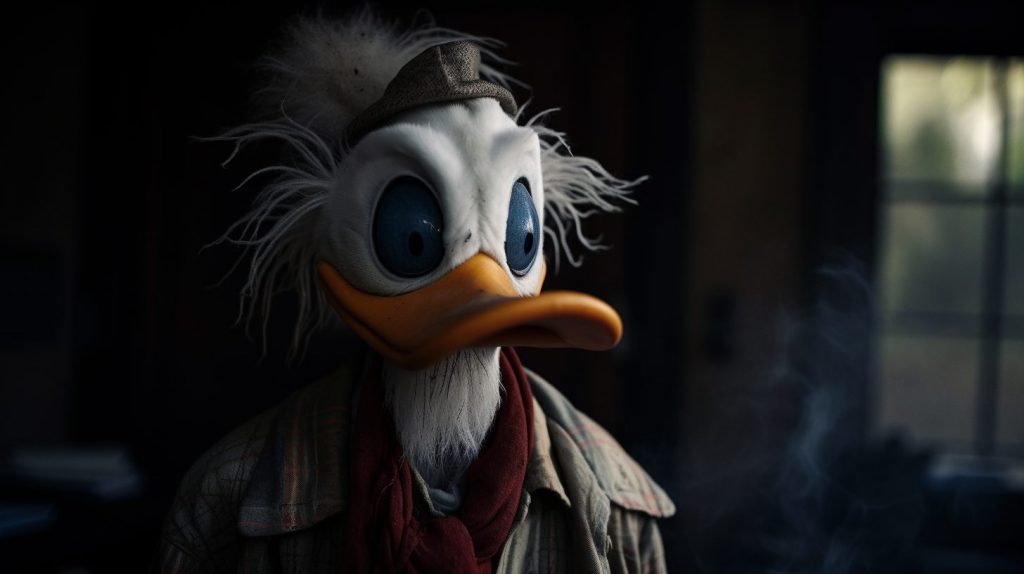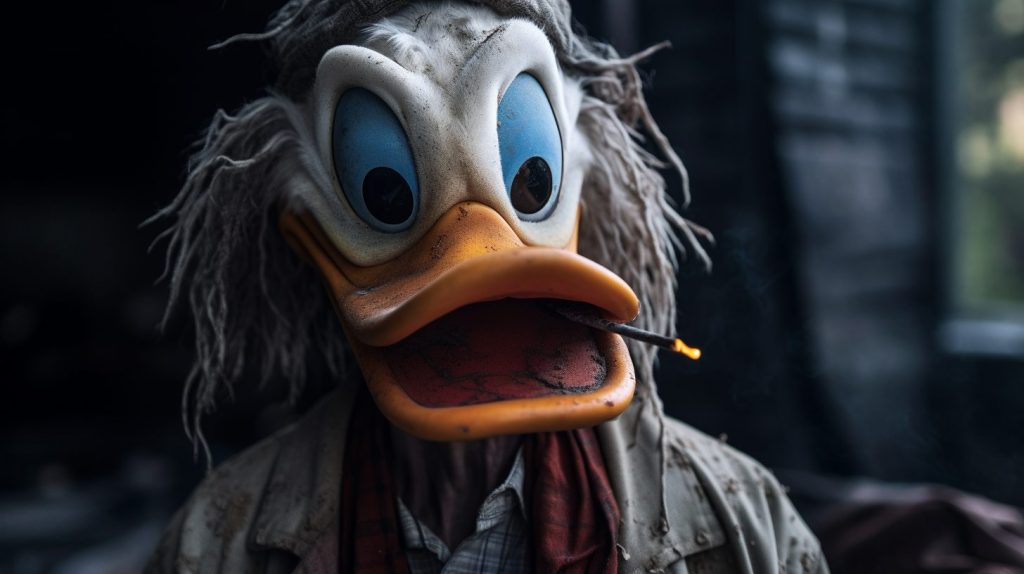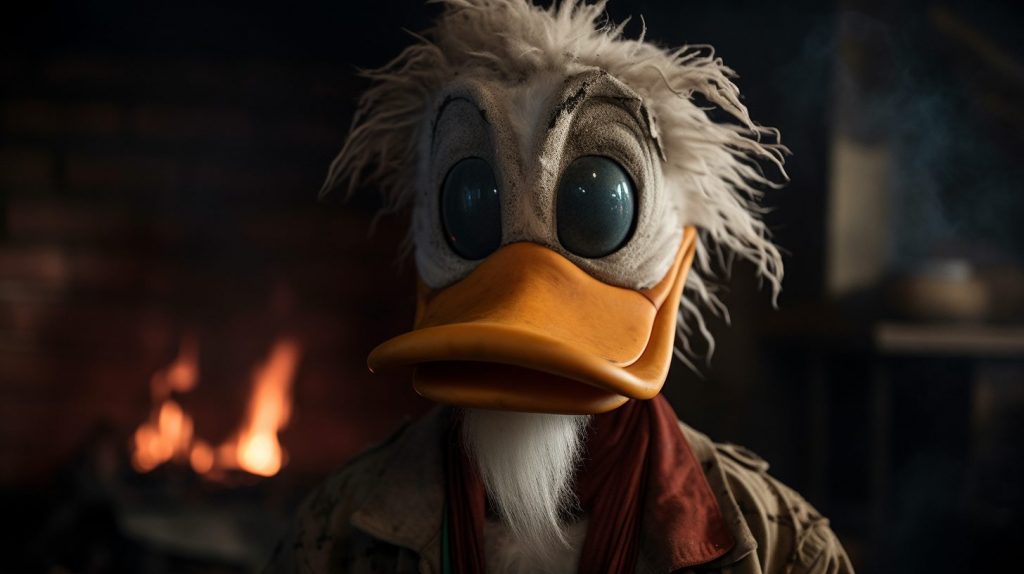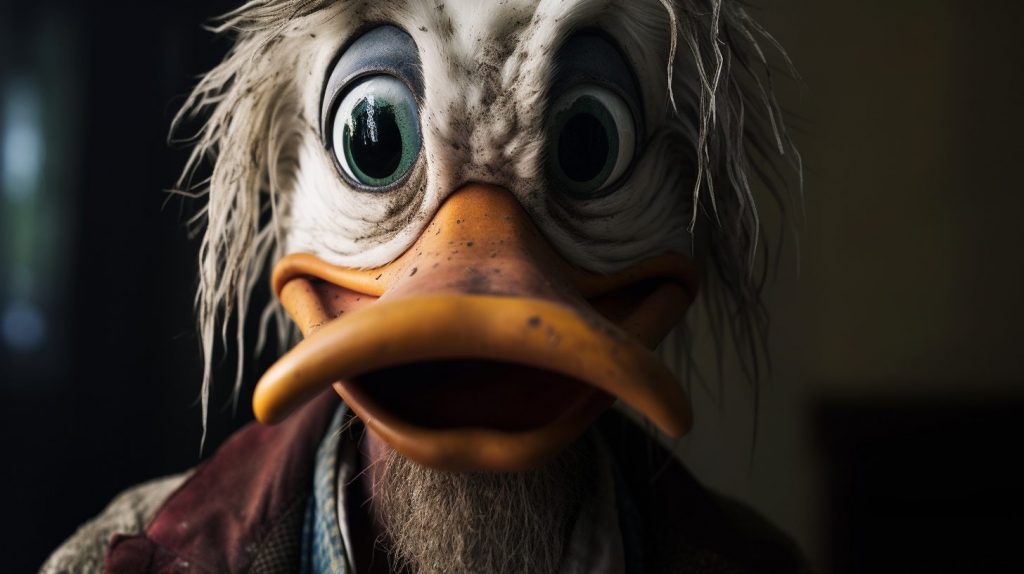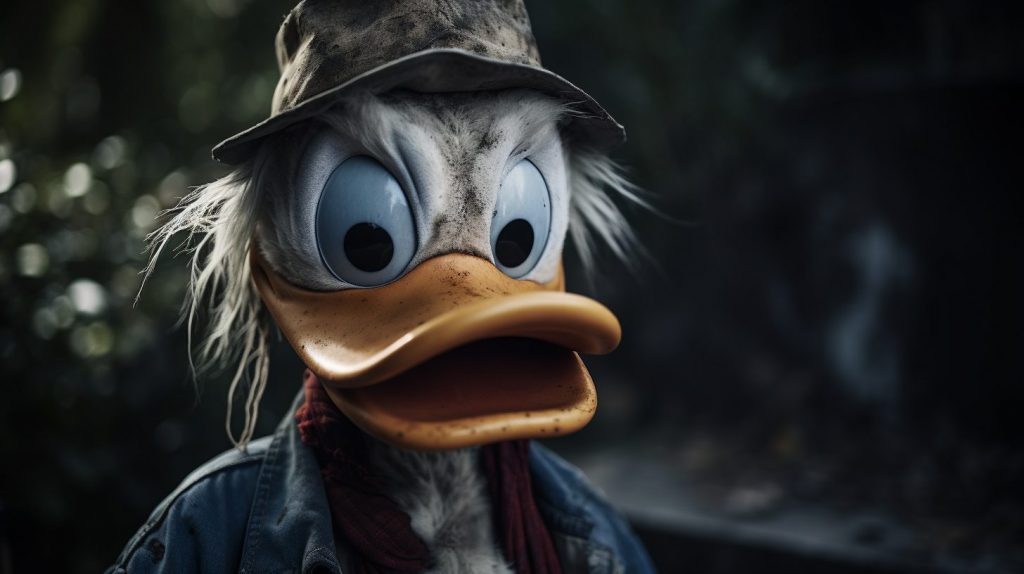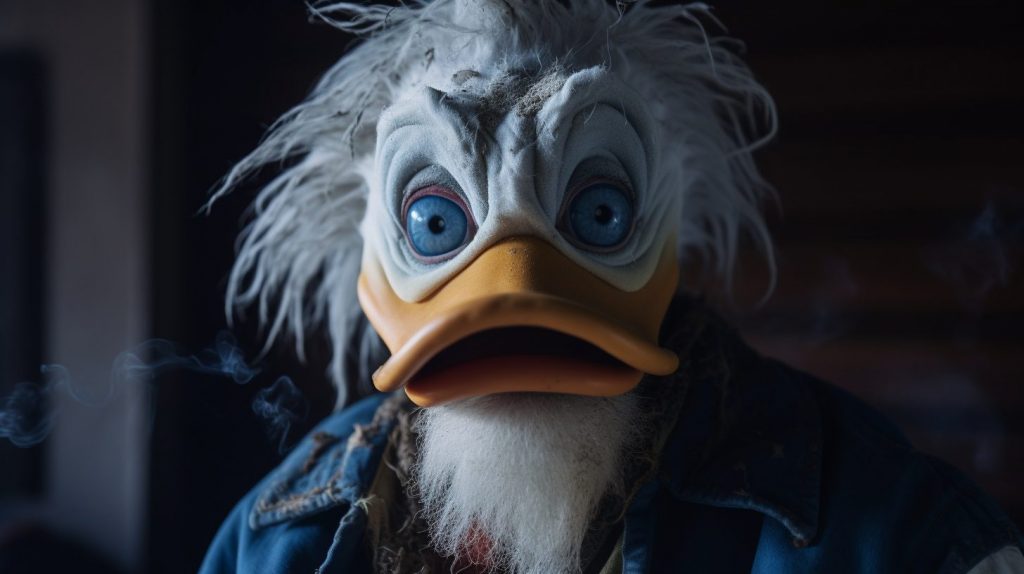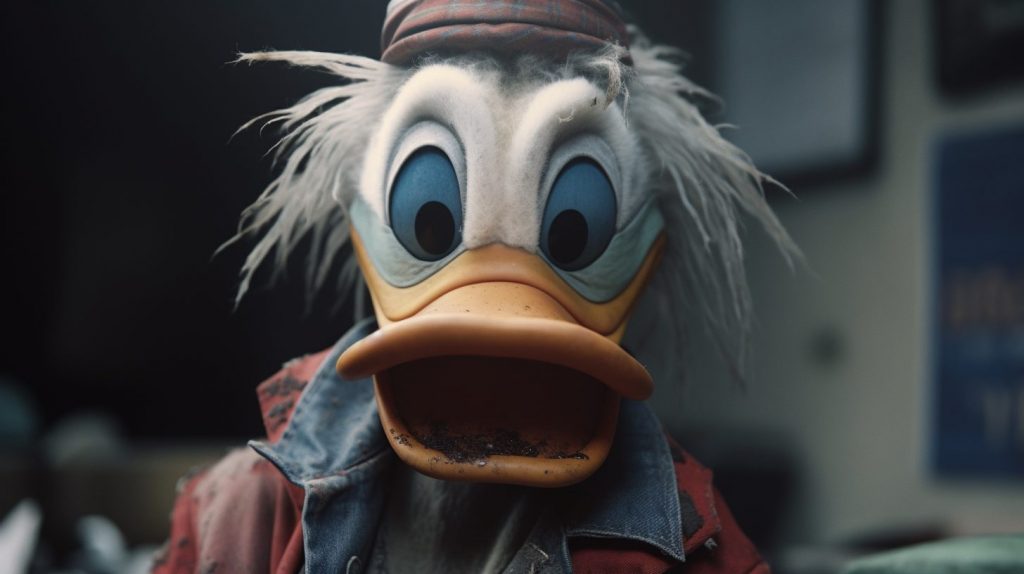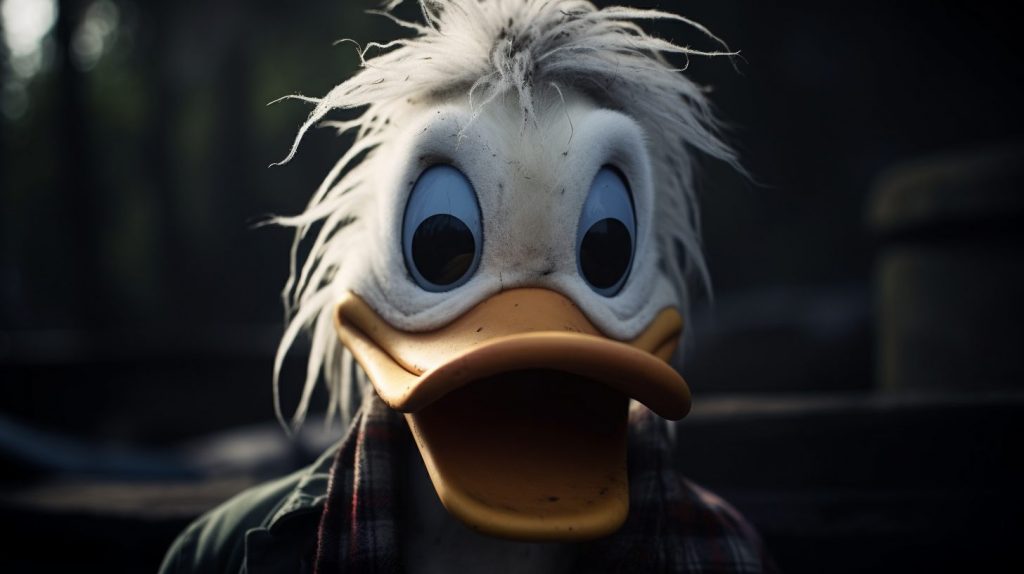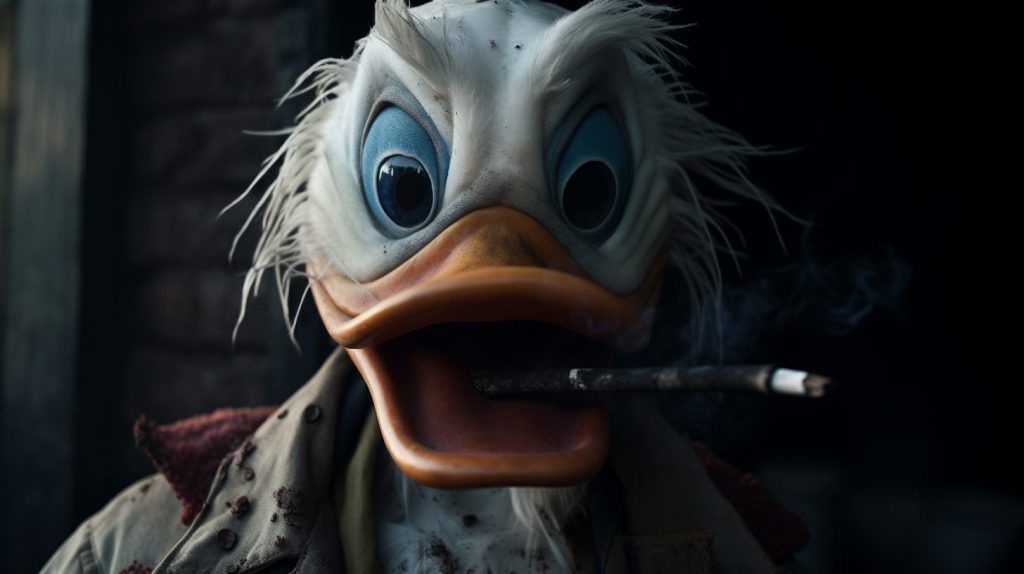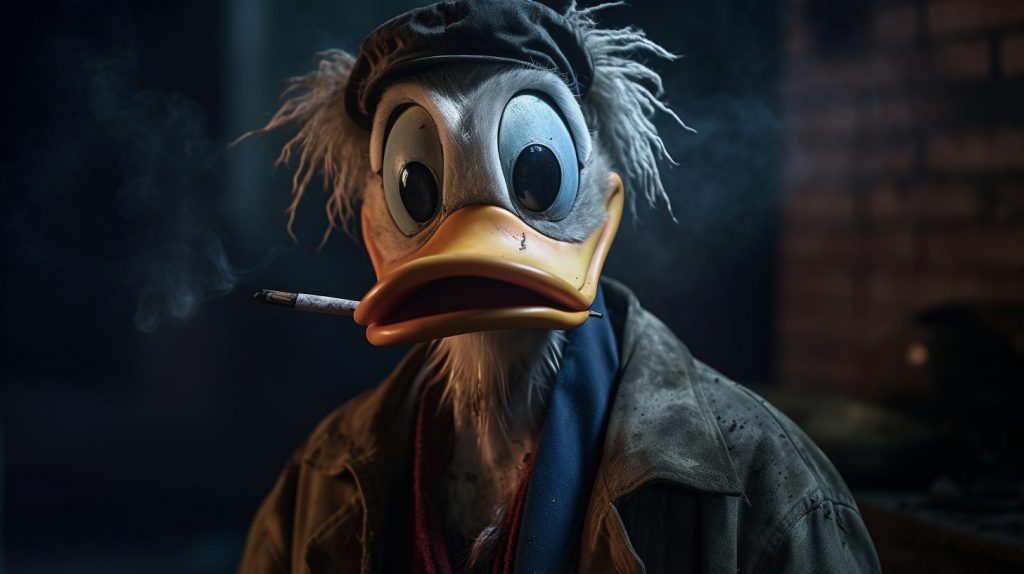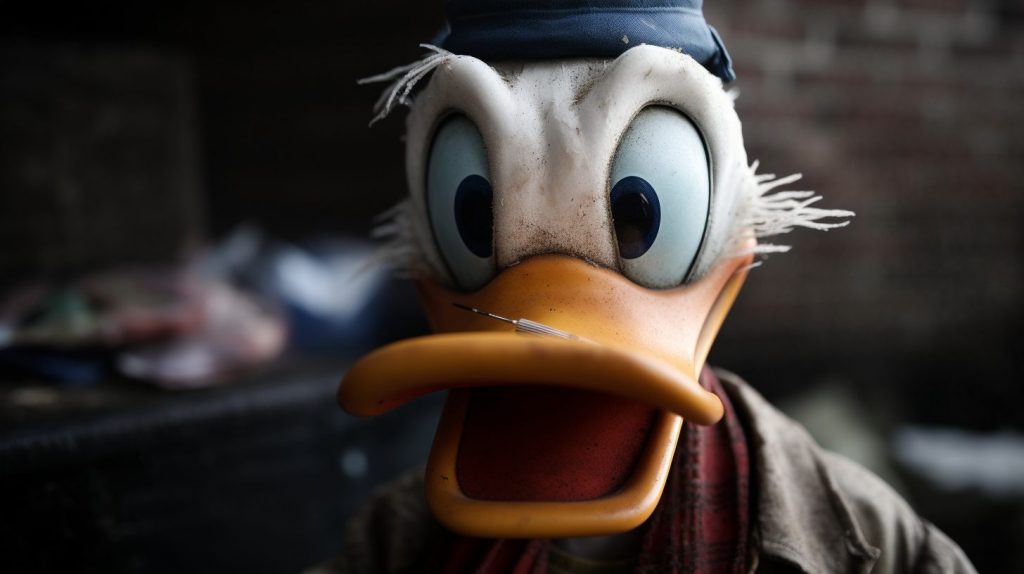Once upon a time in the dazzling realm of Disneyland, Donald Duck was riding high on the waves of fame. He was living the dream, with a plush nest in the most enchanting corner of Disneyland, and legions of fans who adored his every squawk.
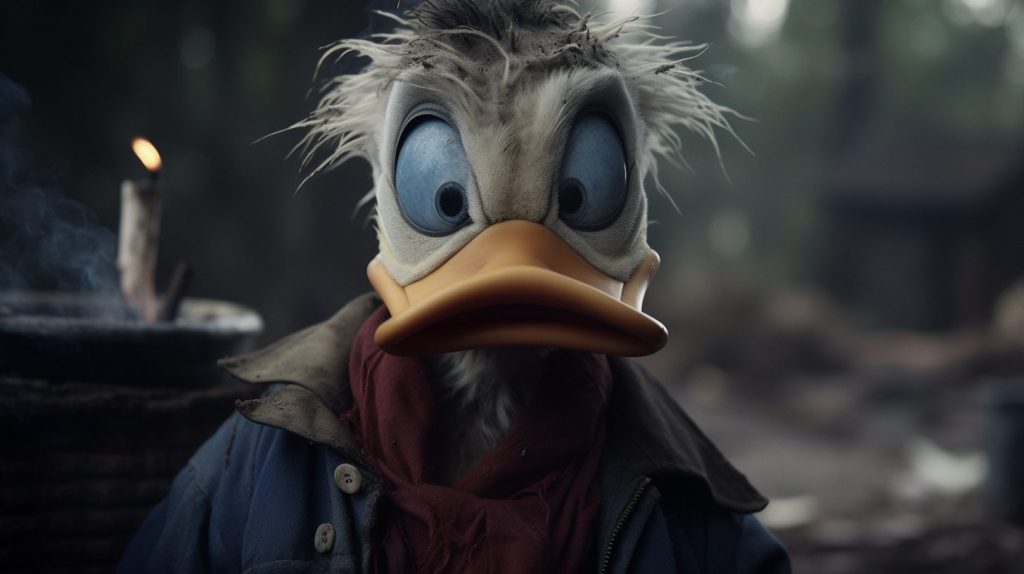
However, the world outside Disneyland was rapidly evolving, and traditional animation was becoming a thing of the past. The rise of new technologies like virtual reality and 4D animation cast a shadow over the colorful lives of hand-drawn characters like Donald. As the limelight began to fade, Donald started feeling the cold sting of obscurity.
Struggling to cope with his dwindling popularity, Donald found solace in pharmaceutical drugs and alcohol. The cocktail of substances allowed him to escape the harsh reality of his declining career, and revisit the days when his name brought joy to millions around the globe.
Donald’s sailor outfit, once a beacon of joy and laughter, now hung loosely over his skinny frame. His usually energetic voice was reduced to a tired squawk. His friends and fellow Disney characters, like Mickey and Goofy, started noticing Donald’s downward spiral.
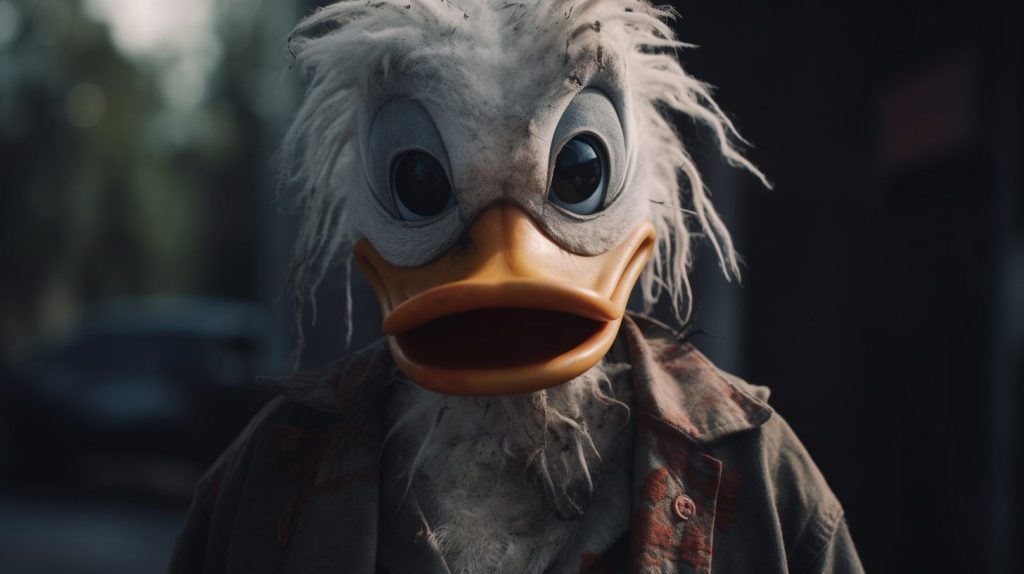
Mickey, the ever-loyal friend, tried to intervene. He visited Donald, who was surrounded by empty bottles and pill containers, the TV droning on with his old reruns.
“Donald,” Mickey said, his voice laced with concern, “you’re losing yourself. You need help.”
But Donald, trapped in the hazy world of his addiction, shrugged off Mickey’s intervention.
As his dependency deepened, Donald began missing his performances, his lines became slurred, and he seemed to lose his iconic charm. The final straw came during a live show at Disneyland. On stage, Donald, disoriented and inebriated, broke down and started crying. The audience gasped in shock, the cheerful atmosphere crumbling around them.
Disney executives were forced to act. They gave Donald a clear choice: seek help and address his addiction or leave Disneyland. Donald, however, too deep into his substance abuse, chose to leave. With a heavy heart, he packed his sailor suit, took one last look at his beloved Disneyland, and waddled out of the gates.
Life on the streets was brutal for Donald. He became a wandering vagabond, a faded star barely surviving on handouts. People passed him by, either oblivious to his identity or laughing at his fallen status. Donald’s world had shrunk down to his next drink or pill.
Then, one day, as Donald sat on a park bench, a little girl named Lucy approached him. She looked up at him and asked, “Are you Donald Duck?”
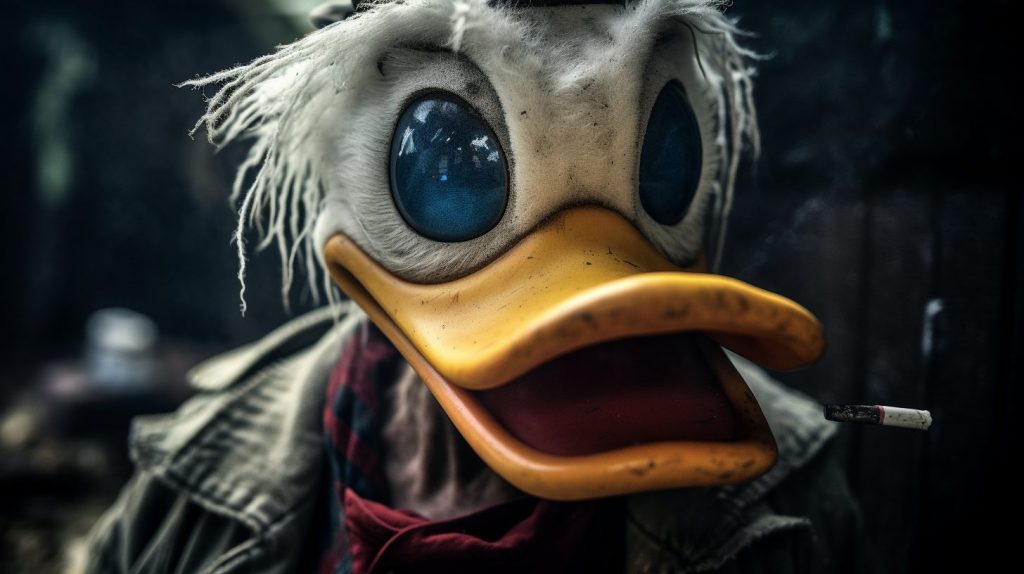
Donald, surprised, nodded. Lucy smiled. “My grandpa loved your show. He said you were very funny!”
These words struck a chord in Donald. He realized that even though his glory days were behind him, he still had the ability to bring joy to people. He decided then and there to confront his addiction.
With the help of Lucy and her family, Donald started attending rehab sessions, wrestling with withdrawal symptoms, and gradually reclaiming his life from the clutches of addiction. After months of hard work, he started a YouTube channel, rekindling his comedic spirit, and sharing tales of his journey from addiction to sobriety.
Donald’s story became an inspiration for many, proving that even when the world moves on, it’s never too late to redefine oneself. Though he lost Disneyland, he found a new home in the hearts of people worldwide, once again earning the respect and love he had in the golden days.
